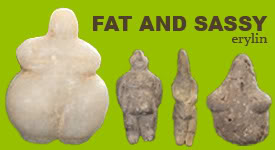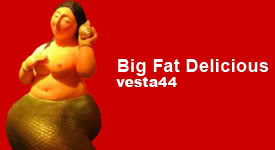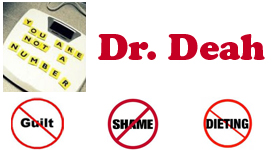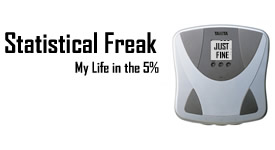Energy in/energy out argument.
July 30, 2024
ARGUMENT: “If you eat less and exercise more, you will loose weight.”
COUNTERPOINTS :
1. Humans tend towards a certain weight range:
- Some people call this range our set point. Others call it the settling point.
- The number of fat cells in your body is fairly constant throughout your adult life. You can increase the number, but not decrease it.
- Of those who do lose weight, the majority regain any weight lost within five years.
- The heritability of weight is similar to that of height.
2. We loose weight at different rates:
- Some people struggle to lose any weight and seem to be weight loss resistant.
- Some people loose weight once they change their eating and exercise habits.
- Many people hit a plateau at a certain point in their weight loss.
3. We gain weight at different rates:
- Some people are thin their entire lives and can’t gain weight, no matter how hard they try.
- Some people are thin when they’re young and get fatter as they age.
- Some people are fat their entire lives and possibly tend toward weight gain.
4. Body stress can spark states of weight loss or gain:
- Pregnancy, illness, injury, lack of sleep, and stress are on the list of things that can spark
body changes. - Also, age impacts weight. After 30 we tend to gain and after 60 we tend to lose.
CONCLUSION :
Weight is a complicated biological process. A simple equation of energy in/energy out can not represent all the factors that come into play. Such a simplification is a disservice to a public that are seeking to be informed health consumers and to the medical professionals trying to promote health.
Can you think of any other counterpoints that expose the complexity of the energy in/energy out argument?
22 Comments
leave one →























I think the fact that no two people are exactly alike comes into play here also. Two non-related people starting out at the same age, height, weight, gender, doing basically the same things on a daily basis, eating the same things, probably will not end up being the same weight at the end of a specified period of time (1 year, 5 years, 10 years). Not only do genetics come into play, but environmental factors, stress, lifestyles (hobbies, kids, marriage, job, etc) all come into play to mess with one’s metabolism. (Has any research study ever covered that?)
Repeated dieting can also change one’s metabolism, and not for the better. And one’s metabolism doesn’t always recover from being messed with, either.
vesta44 -
One of the newest pieces of information I’m learning about is how multiple genes interact to determine weight.
I found this PDF about the Human Obesity Gene Map that says, “The number of quantitative trait loci (QTL) reported
from animal models currently reaches 408.”
So that means there are 408 “stretches of DNA that are closely linked to the genes that underlie the trait in question.”
This find was one of those YAY moments for me…becasue I’m always looking for evidence to support the idea that we each have different weight loss experiences.
Not only non-related ppl, my sister and I are the same weight, yet I can take it off and keep it off with moderate diet change and exercise, and she gains trying to do that. I wonder sometimes if it’s a mind set as well, since she is desperately unhappy, and blames everything on her weight, and I never have. She prefaces her sentences with “Back when I was thin and beautiful”, and doesn’t want to accept herself the way she is. I finally lost it last week after DAYS of listening to the “I’m so fat, I disgust myself, I can’t look in a mirror or even touch myself, I’m so gross” and yelled at her, telling her that her weight didn’t have anything to do with her mood, that she was an unhappy person, and it didn’t matter if she weighed 95 pounds, she was still going to be horribly unhappy, just like she was when she was thin. Which she has convieniently forgotten.
She thinks my FA is a cop-out, that I couldn’t possibly be happy being fat. While she’s wasting her life and health trying the next diet fad (and contemplaiting gastric bypass), I’m a fat happy person with beautiful lovers, a happy home and family, and a great career.
This is great! A nice breakdown of just what CI/CO doesn’t take into account. One thing I would add is that basal metabolism accounts for over half of Calories Out, and basal metabolism is one of those genetic factors. Although increased lean muscle mass can “turn up” your basal metabolic rate, a simple CI/CO formula does not account for day-to-day energy expenditure.
Nicely done, Elizebeth.
Peace,
Shannon
atchka -
I avoided noting about basal metabolism becasue there seems to be debate surrounding that topic. I found this article that talked about the two sides of the debate, Slow Metabolism, Is It Real: The Facts and Myths
On the flip side, there does seem to be more of a consensus that metabolism changes in reaction to weight loss or weight gain. I even had little thrill when I read this line, These findings support the hypothesis that the (autonomic nervous system) ANS acts to oppose weight change. Seeing as I’m often trying to suggest that our bodies fight us trying to change our weight.
Let me think about this. I think your right that some mention should be included on this list…I’m just not sure where or how.
I’m sure you’re seen this article, but I thought I’d mention it here for the sake of completeness.
http://www.nytimes.com/2007/05/08/health/08fat.html
Simone Lovelace -
I am TOTALLY going to do some more research into that article. I was to see if there are other studies that support the evidence that larger weight peoples burn “fewer calories per square meter of their surface area” than normal weight.
GREAT FIND!
Hooray for links!!! Super-awesome resource now!
Peace,
Shannon
Even if creating a calorie deficit leads to weight loss, doesn’t mean it’s healthy! In fact, eating a calorie restricted diet can produce serious mental and physical symptoms, even in young, healthy men with no known body-image troubles.
http://living400lbs.wordpress.com/2008/10/21/minnesota-starvation-experiment/
Pyschological symptoms included social withdrawal, depression, obsession with food, and self-mutilation.
And don’t forget this study that said if you’re over 50 that losing more than 15% of your body weight is correlated with shortened lifespan (not including wasting due to disease).
Peace,
Shannon
Simone Lovelace -
I’ve been thinking of doing a series of argument/counterpoints posts…I will definitely be including your suggestion (and atchka) as a counterpoint to the “weight loss is healthy” post I’m still still drafting up.
Elizabeth, this is brilliantly put together. *applause* Thank you and well done!
Great post. I am loving the evidence that back your statements. Geesh, I have been intellectually lazy lately; after reading this, I need to get back to researching the “fat is bad” ludicrous idea. LOL
I am loving the evidence that back your statements. Geesh, I have been intellectually lazy lately; after reading this, I need to get back to researching the “fat is bad” ludicrous idea. LOL
I’m not sure how any of this makes energy in/out invalid. If some people are resistant to weight loss, then something must be happening to make it so. Maybe they become much more efficient at storing energy, or maybe something happens with appetite or maybe the amount of energy they use drops dramatically, but none of those would invalidate the basic calories in/out idea. I suppose I’m just confused because while I don’t take issue with any of the links you’ve posted (although I haven’t made my way through all of them) I don’t see how it doesn’t all eventually boil down to calories in/out. That doesn’t mean weight is simple, of course, or that weight loss is totally possible (and desirable) for all fat people. I’m just not following.
Although that could have a lot to do with being on vacation and being a bit hungover.
attrice -
It seems like your reacting to my use of the world “validity” at the end of the post. Because the points your talking about are all true and your not saying you disagree with the points I’ve made. Is there another wording or phrase I could use to make you feel more comfortable?
I don’t have an issue with the points you’ve made. I don’t LIKE the simplification of “energy in/energy out” but it holds a grain of truth. There has to be an imbalance of energy in order for people to gain or loose weight.
The problem I have is that I often feel like the nuance of our bodies dealing with weight differently is lost by the use of that simple phrase. I understand if you possibly disagree with that perspective but that is the motivation behind this post.
I think we’re basically in agreement. I absolutely understand wanting to reject the phrase energy in/energy out because, while accurate, it doesn’t reflect the reality and variety of responses to energy imbalances in individuals.
However, my feeling here is that throwing the phrase over completely can sometimes leave those espousing FA open to attack by critics. I still from time to time see someone insisting that one can expend more calories than they eat and not lose weight and make some reference to how calories in/out is a myth. To be blunt, I think that sort of thing really undermines the entire movement. It makes us look like loony denialists rather than what, imnsho, most of us are which is people who know more about a lot of the research into weight regulation than the average lay person. So it’s really just a personal knee-jerk reaction to always clarify whether someone means ‘it’s extremely complicated’ or ‘the body can break laws of physics.’
attrice -
You wanna hear something kinda funny? This post was inspired by a feeling that I want to be more of a critical thinker (ie skeptic) in my approach to FA.
I feel like there ISN’T a scientific consensus on what the “association” between weight and metabolic health means…and the research that exists paints a conflicting picture that could support the theory that fat is good or bad or neutral…but I feel really uncomfortable denying that there IS an association BECAUSE it “undermines the entire movement” and make us look “like loony denialists.”
More and more I’m feeling that it’s better for us to fight public health policy than to fight the science. But that’s another rant for another day.
And thanks for the reply. I’m happy we ironed this out.
attrice -
Perhaps a better phrase would be “exposing the complexity of this issue” instead of “argue against the validity?”
I always thought that “energy in/energy out” was a sort of catchphrase for whole the dominant narrative of how weight loss works. (Eat less, and exerise more, and then you’ll be skinny, and boys will like you!) I’ve certainly seen it used that way before.
Obviously, in a literal sense, the difference between the number of calories your consume and the number your burn will be expressed as weight change. But how many calories your absorb from your food, how many you metabolize, and how much weight you gain are all beyond the scope of simple, universal formulas.
I think I’m with attrice on this one.
“Calories in/calories out” is a restatement of the first law of thermodynamics. Trying to argue against it just comes across the same way that arguing that all humans actually have the same mass, and the only reason they weigh different amounts is because the strength of earth’s gravitational pull varies between individuals does - as either ignorance or delusion, depending on how charitable the observer is feeling.
I personally favor something like “Yes, there is a level of calorie intake below which I will lose weight. Unfortunately for your sense of aesthetics, it’s below the level at which the autonomous systems in charge of keeping my body alive decide that you’re food.”
Elizabeth wasn’t declaring the concept to be nil- read her conclusion more carefully.
The in/out thing seems to work for me pretty well, altho I will never be thin, since my people are squat square peeps, German/Italian/Native American with a little Irish thrown in. My Facebook pic was at 200, 120 pound loss over a 5 year period, simply by consuming less and moving more. Yet I’m still square bodied, just like I was when I was bodybuildbiulding, just like the pics of my grandparents. Like others have stated, it’s complicated, and no one answer is a universal fit. Good thoughts and comments from everyone, nice to see actual discussion, not a bunch of “Yo’ Momma!” flaming.